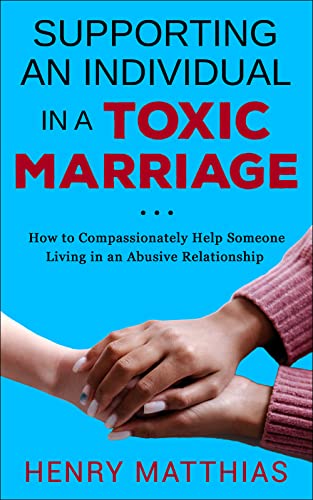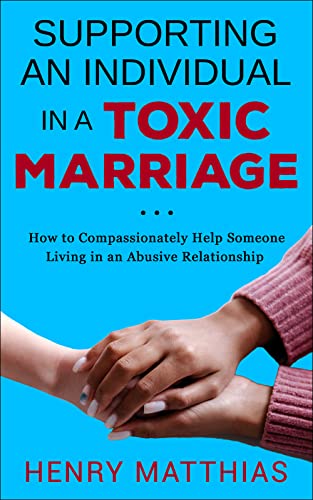This Book will help you help a friend or family member who is in an abusive relationship without putting them in danger or intimidating their abuser.
Do you have a friend or acquaintance who might be in an abusive relationship but chooses not to talk about it?
Do you fear for their safety because you know how easily abuse can lead to more severe consequences?
Do you wish there were a way to assist them that wouldn’t get you in trouble?
That feeling is shared by others, too. Truth be told, it’s always the victims’ friends and family who are more concerned about the state of their relationships than the victims themselves.
You fear for their well-being because you know that unchecked abuse can have fatal consequences.
It’s already difficult because the victims often don’t want to be rescued. They’re eager to keep granting their abusers second and third chances. They continue to hold out for the impossible dream that things will change over time.
Abused people can’t see clearly enough to help themselves, so they become victims. Despite your best efforts to persuade them otherwise, there are some people who simply refuse to leave an abusive partner.
The most you can do is assure them of your support as a source of comfort and assistance in any circumstance.
This book will show you how to be there for friends and family members who are in abusive relationships by giving you the tools you need to show them you care.
Inside, you’ll discover:
- The inner workings of an abusive relationship, the different forms abuse can take, and the factors that contribute to abuse
- Why mental illness is not to blame for abuse
- How to recognize the warning signs of an abusive relationship by studying these two aspects
- Why victims of abuse should not be judged for staying in abusive relationships – and the psychological reasons why some victims actually grow closer to their abusers
- Questions to help determine if someone is being abused, and how to inquire about their situation without coming off as intrusive
- When to take immediate action to protect a vulnerable person from harm
- What to do and what not to do when confronted with abuse, including the significance of knowing your limits in the face of such news
- How to promote safety and develop a safety plan with your loved one in case of emergency
And much more…
Just because they tell you they’re okay and don’t need help doesn’t mean you need to stop offering it to them.
They are called “victims” for a reason and need your support – let them feel they are loved and cared for from all sides.
Confronting the reality is challenging because you’re not only fighting against the abuser, but you also need to be patient with the victim.
But you can do it, and you’re just a few steps away from making it happen.
$0.99 on Kindle.



